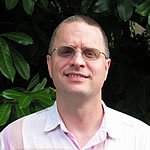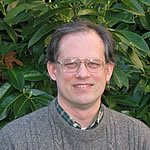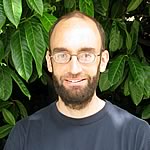Faculty
Prof. Laura Little receives UW Distinguished Teaching Award
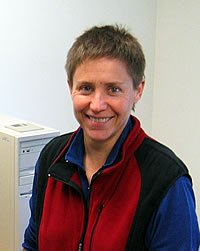 |
| Professor Laura Little |
Having long stood tall in the esteem of UW psychology students and faculty, Senior Lecturer Laura Little has been recognized by the University community with the 2005 UW Distinguished Teaching Award. Recipients of the Distinguished Teaching Awards have demonstrated mastery of their subject area, enthusiasm and innovation in their teaching methods, and the ability to inspire their students. “I love to teach,” says Dr. Little, reflecting on her work. “I have always found the intrinsic rewards to be more than enough,” she continues, “[however], I’ve been quite surprised at how much this big pat on the back has meant to me.”
Interestingly, teaching was not Dr. Little’s first career choice. Earning a law degree in 1981, she practiced criminal law for several years, developing a reputation as a specialist in cases involving scientific testimony and scientific evidence. After deciding to return to graduate school, Dr. Little became captivated by the study of statistics and probability. A professor recognized her potential and encouraged Dr. Little to pursue teaching. From that point, there was no turning back.
“As I look back on it now,” says Dr. Little, “I can see a very clear connection between my law practice, which was mostly at the appellate level, and my teaching career: I have always been especially interested in standards of proof and requirements to upholding a claim. The logical arguments are very similar across the two domains. How much evidence is sufficient to uphold a claim? How do we decide whether the evidence is sufficient?”
UW psychology majors will tell you that competition is keen for a seat in one of Dr. Little’s research methods or statistics classes. Students acclaim her passion for learning and her willingness to give personal attention. “I teach a way of looking at the world and a way of making decisions in the face of uncertainty. I never forget that I am offered a chance to improve students’ ability to think critically about important issues in their lives and their ability to make informed, data-based decisions,” says Dr. Little. “I feel humbled by my students’ trust in me, and I am inspired by their engagement in the process.”
Dr. Little reflects on the path that her career has taken, and then considers the impact of this recent award. “I feel very energized by it,” she says, “and—I think I’m even standing a few inches taller.”
Professor Michael Passer: The New Flavor of Psych 101
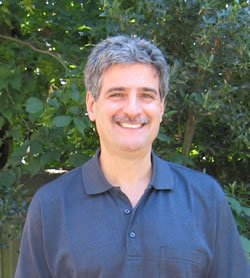 |
| Professor Michael Passer |
Take one huge introductory course, add to that an experienced and dedicated instructor, a good portion of creativity, and the desire to create a more active learning experience for students. What you have are terrific ideas and the best of intentions. But, to really get it cooking, throw in a strong measure of support from the College of Arts and Sciences and you’ve got a recipe for success!
That dedicated professor is Senior Lecturer Michael Passer, and what he and a team of psychology instructors and graduate students cooked up was a revamped version of Psychology 101. In 2004, Dr. Passer was awarded a Foundations Course Initiative grant from the College of Arts and Sciences. These grants provide UW departments and educators with the resources necessary to assist in bringing a more student- and learning-centered focus to large entry-level classes. The aim is to actively engage students early on in their studies.
Dr. Passer and his team developed a set of online activities for Psychology 101 that were designed to: provide students with opportunities for active learning; increase students’ understanding of key psychological concepts; enhance students’ appreciation of how psychological concepts apply to everyday life; facilitate critical thinking; and, provide students with an opportunity to assess how well they understand the material.
While large entry-level courses are an important piece of the overall educational mission of the UW, they do present a particular set of challenges for instructors. “Those of us who teach Psych 101 try to engage our students and make the subject matter come alive,” says Dr. Passer. “But, the large class size of up to 440 students and the lecture-only format make the course a challenge to teach. These online activities are one step toward boosting active learning and providing students with a more individualized learning environment.”
Following a test run in Dr. Passer’s spring quarter class, the online activities were made available to over 1,000 Psychology 101 students this fall quarter. The activities focus on principles of classical and operant conditioning, using examples such as Pavlov’s famous research with dogs and B.F. Skinner’s work with pigeons.
An important aspect of the activities is that the students receive immediate feedback on their responses to questions.
Student response has been very positive. “I truly feel that this was an extremely beneficial activity. It did a great job in helping me understand the material and providing the opportunity for me to evaluate my progress,” said one student. n
New Faculty Faces
|
Brian Flaherty, Ph.D. |
Conducts both methodological and substantive research in health and social sciences. His current methodological work focuses on the measurement and analysis of change over time. His substantive work involves examining substance use onset and dependence. |
|
John Palmer, Ph.D. |
Studies visual attention and perceptual decision making in both humans and monkeys. In his research, he measures behavior and relates it to both abstract mathematical models and underlying neural mechanisms. |
|
Scott Murray, Ph.D. |
Studies both the behavioral and physiological side of visual perception. His research focuses on how the brain recognizes features such as faces and objects to help interpret what we see. He uses a technique called functional magnetic resonance imaging (fMRI) which measures changes in blood flow around brain areas with increased neural activity. |
Faculty Accomplishments
John Baer - Editorial board positions with Psychology of Addictive Behaviors and Journal of Studies on Alcohol; Director and Associate Director of two clinical training programs within the Addiction Treatment Center, Seattle VA Center.
David Barash Released 24th book, Madame Bovary’s Ovaries: A Darwinian look at literature; Invited papers: Tromsø, Norway and Barcelona, Spain.
Miriam Bassok - Completed sabbatical at UCLA. Directs UW Psychology Honors Program.
Theodore Beauchaine Was selected as a recipient of the 2006 American Psychological Association (APA) Distinguished Scientific Award for Early Career Contribution to Psychology in the area of Psychopathology.
Michael Beecher - Animal Behavior area head; work on bird song communication was featured in Science News, Editorial Board, Animal Behavior. Invited papers: Brown, Stanford, St. Andrews.
Ilene Bernstein - Behavioral Neuroscience area head; editor, Appetite; Invited papers: Gainesville, FL, Granada, Spain,
Eliot Brenowtiz - Research Scientist Developmental Award, NIH; editorial board: Brain, Behavior, and Evolution. Invited papers: San Diego, CA; Vancouver CA, Austin, TX.
Jonathon Brown - Elected to UW Faculty Senate
Steven Buck - Named Psychology Department Chair; elected General-Secretary, International Colour Vision Society, Arts & Sciences College Council; group rep for UW Faculty Senate; chair, Advisory Council to Dean of Undergraduate Education.
John (Pete) Casseday - Retired in Sept. as Research Professor but will continue his grant-sponsored projects on neural basis of hearing and echolocation.
Ana Mari Cauce - Named UW Executive Vice Provost; Editorial Boards: Developmental Psych., Child Development, President, APA Division 27, Society for Community Research and Action
Ellen Covey - Associate Editor, Journal of Neuroscience. Invited speaker: Prague, Czech Republic
Geraldine Dawson - Director, UW Autism Center; Co-director, UW Integrated Brain Imaging Center; Associate Editor: Development and Psychopathology
Jaime Diaz - UW Senior Faculty Teaching Fellow in four campus programs; Member of the UW Scholarship of Teaching and Learning Group.
Brian Flaherty - joined UW Psychology as Assistant Professor with specialty in quantitative psychology
William George - Director, Institute for Ethnic Studies in the United States (IESUS); Editorial Board: Psychology of Women Quarterly; Advisory Committee Member, Sexual Offender Treatment Program, Twin Rivers Correctional Center, Monroe, WA; Invited paper: NIAAA, Bethesda, MD
Anthony Greenwald - Fellowship recipient, Harvard University’s Radcliffe Institute for Advanced Study; Editor: Experimental Psychology; member of four other editorial boards; nationwide media coverage of Implicit Attitude Test; Board member and Senior VP of Seattle Repertory Jazz Orchestra. Invited papers: Stanford, CA, Boston MA; Vancouver, BC; 6 others.
James Ha serves on UW Faculty Senate; several key administrative positions with the international Animal Behavior Society; with Renee Ha, began major new project on endangered birds on the Northern Mariana Islands.
Earl “Buz” Hunt - Distinguished contributor: International Society of Intelligence Research
Peter Kahn, Jr. - Editorial Board: Children, Youth, and Environments; Advisor to Woodland Park Zoo and Seattle Aquarium Teen Programs; Nominated for UW Distinguished Teaching Award.
Lynn Fainsilber Katz - Began new grant-sponsored projects on emotional regulation in pediatric cancer survivors and domestic violence and children’s adjustment.
Nancy Kenney - Associate Chair, Psychology; Graduate Program Coordinator, Psychology and Women Studies; elected UW Graduate School Council; member, UW GO-MAP Advisory Committee
Beth Kerr - Associate Chair, Psychology; Chair, Faculty Council on University Libraries; Member of the Arts and Sciences Writing Council and of the Advisory Council for the Dean for Undergraduate Education.
Robert Kohlenberg - Invited paper: World Rounds, AABT. Workshops: four; 2 of them international.
Liliana Lengua - Editorial Board: Developmental Psychology
Marsha Linehan - APA Lifetime Achievement Award, Division 12; Editor: Faculty of 1000, Medicine Section Head; Editorial & Advisory Boards: Journal of Personality Disorders, In Session: Psychotherapy in Practice, Encyclopedia of Behavior Modification and Therapy, The Clinical Psychologist, CRISIS, National Institute on Drug Abuse , Advancing Suicide Prevention, Suicide and Life-Threatening Behavior.
Geoffrey Loftus - Invited talk: Honolulu Public Defender’s Office; Editorial Boards: Cognitive Psychology, Psychological Reviewmember NIMH Study Section.
Alan Marlatt - Director, UW Addictive Behaviors Research Center. Invited talks: London, Dallas, Worcester MA, Belfast, Terre Haute, IN, Boston, Berkeley, Gaithersburg, MD, Portland, Burlington VT, and the Norman Zinberg Memorial Lecture At Harvard Medical School in March 2005, on the topic of harm reduction.
Bob McMahon - Child Clinical area head; Invited papers: California, Norway, Banff, North Carolina, Germany, Boston; Editorial Boards: Behaviour Research and Therapy, Clinical Child and Family Psychology Review, Journal of Clinical Child and Adolescent Psychology, Behavior Therapy, Journal of Abnormal Child Psychology; Member of an NIH study section
Andrew Meltzoff - Developmental area head; Co-Director, UW Interdisciplinary Learning and Behavior Sciences (ILABS) Center; named Tamaki Chair (get details); Invited papers: Seattle and Oslo, Norway; Associate Editor: Developmental Sciences.
Sheri Mizumori - Elected to UW Faculty Senate; Invited talk: Eugene OR; Editorial Boards: Neurobiology of Learning and Memory, Behavioral Neuroscience.
Scott Murray - joined UW Psychology as Assistant Professor with specialty in cognitive neuroscience
Sean O’Donnell - Guest lectures: multiple locations in Costa Rica; Invited papers: Urbana, IL; Austin, TX. Editorial Boards: Insectes Sociaux,, Journal of Insect Behavior . Media coverage: USA, Canada, Germany.
Jaime Olavarria - NIH-funded research on the development of brain connections. Appointed as Research Affiliate to the Center on Human Development and Disability (CHDD), and to the Virginia Merril Bloedel Hearing Research Center. Selected to teach for the Gaining Early Awareness and Readiness for Undergraduate Programs (GEAR UP) Summer Institute in 2005. Nominated for 2006 UW Distinguished Teaching Award.
Lee Osterhout - Cognition/Perception area head; Invited talks: Victoria BC, Japan, Germany, the Netherlands, and Italy; Editor: Memory & Cognition: Editorial board, Brain & Language; Member: NIH Study Section.
John Palmer - joined UW Psychology as Research Professor with specialty in attention and visual perception
Yuichi Shoda - Social/Personality area head; Editorial Board: Psychological Review, Journal of Personality and Social Psychology; member, NIH study section,
Jane Simoni - Adult Clinical area head; Editorial Boards: AIDS& Behavior; Health Psychology; Psychology of Women Quarterly; and Journal of Counseling Psychology; elected Fellow: APA Divison 28: Health Psychology, and APA Divison 44: Society for the Psychological Study of Lesbian, Gay, and Bisexual Issues; Invited presentations: throughout the US, Puerto Rico, Thailand.
Ronald Smith - Director, UW Clinical Psychology Training Program;
Frank Smoll - UW Psychology Human Subjects Coordinator; conducted over 25 sports coaching and parenting workshops to over 2,500 attendees.
Lori Zoellner - PI, UW Collaborative Center for the Cognitive Behavioral Treatment of Anxiety Disorders; Invited


